#dailylesliec translations
Explore tagged Tumblr posts
Text
[TRANSLATION] Art and Piece Issue 16 - Stanley Kwan about Leslie Cheung


“Seeing Leslie with my own eyes made me realise there really are some guys in this world who are truly beautiful.”
BORN ELEGANT AND FLAMBOYANT TO THE END
Stanley Kwan - Director of "Rouge"
I am Stanley Kwan. I directed the film “Rouge, " where Gor- gor and Mui Jeh (Anita) starred. I really miss having these old friends around - just watching their movies or listening to their music brings all the memories back. Leslie and Anita both had their Unique Elegance and were a perfect match for Rouge. I saw Leslie’s most beautiful side, and at the same time bore witness to the trembling of his two hands.
I first worked with Gor-gor in “Nomad” directed by Patrick Tam. I was the assistant director. Seeing Leslie with my own eyes made me realise there really are some guys in this world who are truly beautiful. I was initially not attached to “Rouge” - Golden Harvest had initially set Terry Tong as the director and even the cast had been finalised, with the actors being Anita, Adam Cheng, Andy Lau and Cherie Chung. But the script took too much time, and Director Tong had other projects to attend to. Excluding Anita, the whole cast left one by one as well, and I took over the film. I thought long and hard about who could play Master Twelve. At the time Ekin Cheng was just starting out. After seeing him work with Lawrence Ng, I wondered if I should cast Lawrence for the role. Ah Mui saw me struggling and suggested, “What if I tell Mr Ho (TN: the film producer & founder of Golden Harvest) that I’ll do a movie for Cinema City in exchange for Leslie doing this film?”
Leslie was very creative. As an example, he and Anita were really close, so in a scene where they were smoking opium, he put his hand on her chest. He knew she wouldn’t object or say anything, and she too thought that was what the scene needed. I could feel the tacit understanding between the two of them - it was easy to see working on “Rouge”, and I found that they didn’t even need to discuss much. In 2001, I began work on a film titled “Scenery Against the Light”. Both Leslie and Anita expressed their interest in the story and contents of the film, but I’ve never been efficient in working on scripts. By 2002 when I reached out to both of them again, they both had their own issues even before the script was ready. I was shocked.
I usually saw Leslie on occasions where a few of us were doing a gathering at his house or an event arranged by Florence, but we’d always talk. We had a lot in common to talk about, not necessarily deeply personal things like family, but we talked a lot about our personal feelings and thoughts about living, including our careers: Leslie also “suffered” a lot to get to where he was in his career. The first time I found out about his hands trembling was at a dinner gathering too. Originally, “Lust, Caution” was going to be directed by Edward Yang instead of Ang Lee. He thought Leslie was really suitable for the role, so I arranged a dinner gathering for him in late 2002.
The dinner was very casual and we kept talking even after the meal had ended. Leslie tucked his hands under his thighs. His whole body was trembling. He was paying attention, but his attentiveness... it was almost like he was in a trance. After Director Yang left, I asked Leslie why he was so nervous. Leslie said he wasn’t scared of Edward Yang, but I still saw his shaking hands. He never explained why.
That incident is nowhere near my most unforgettable memory of Leslie though. The most vivid picture in my mind is the scene in “Rouge” where he turns around and smiles after walking up the stairs. When I watched the playback, a voice behind me suddenly asked, “Really pretty, right?” Before I turned around, I could already tell it was Leslie’s voice. It really was very pretty - that elegant, playful feeling was really something else. He was brilliant.
His brilliance remains unchanged even throughout these 20 years. Be it Leslie or Anita, fans are still willing to see them as friends. I, too, don’t think they’re that far from us. It’s just like they went abroad to study, to live, to spend their days. When the 4K restored version of “Rouge” was broadcast in cinemas earlier, I went to go watch it again. It really feels like I didn’t film the movie thirty-something years ago. It’s like I was still filming last week.
Translated by me (@dailylesliec on Twitter/Tumblr), do not repost without credit. If you like this translation, consider following me or buying me a Ko-fi. For the formatted PDF version of this article, click here.
#leslie cheung#dailylesliec translations#art and piece issue 16#張國榮#rouge 1987#rouge#胭脂扣#art and piece
23 notes
·
View notes
Text
[TRANSLATION] Art and Piece Issue 16 - Dora Ng about Leslie Cheung
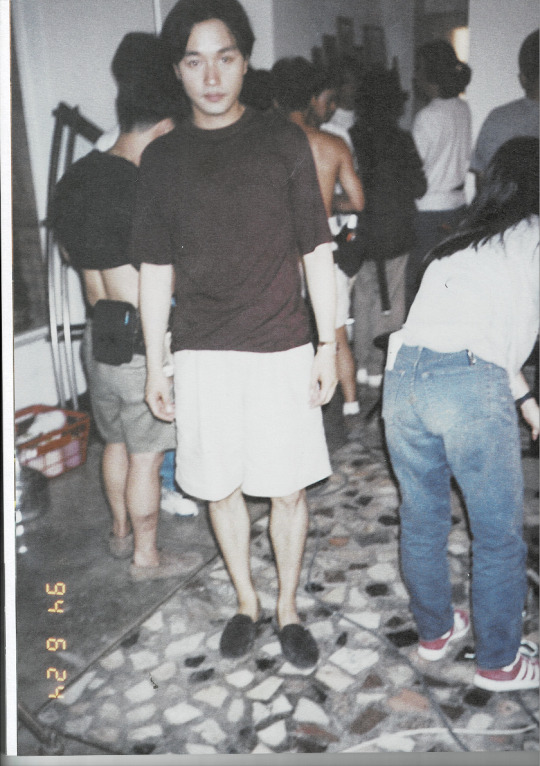
"If you ask me what I miss most about him, I think it’d be that really kind and approachable feeling."
FLOATING BY, SWEEPING PAST, THEN REMEMBERING AGAIN
Dora Ng - Costume Lead, "He's a Woman, She's a Man"
I am Dora Ng, I love fashion, am a movie costume director/ lead, and had the privilege of snapping a few design shots for Gor-Gor. In the blink of an eye, twenty years have passed. My relationship with him can probably be described as... honest acquaintances. Actually, we only worked together a few times, but the first collaboration was already the most well-known one: He’s a Man, She’s a Woman.
Being in the industry for so many years, I can’t deny that a superstar like Leslie felt very distant at first. It’s only when I got to know him that I found his friendliness and warmth could melt the ice between person and person. I first worked with him on “He’s a Man”, and at the time we frequently discussed our worries about the budget being quite small. He generously said, “Come to my house and pick out some clothes then!” He was completely serious - it was both surprising and touching. To be blunt, Gor-gor’s home was a sea of clothes, but he never hurried us or questioned us. The most memorable time was when we spent over two hours there but still hadn’t finished our work. He ended up saying, “Since this is the situation now, how about you stay for dinner together?” It was just a simple sentence. An outsider might find it hard to understand how meaningful that was, but Gor-gor was that person who is always willing to help you; always willing to give you patience, time and space.
He wouldn’t stop chatting with you, and would try his best to make you relaxed. That’s still something unforgettable for me. Other than the two He’s a Man films, I also worked with Gor-gor on Okinawa Rendez-vous and Anna Magdalena. I especially remember that Leslie refused to wear big brands in Anna Magdalena and suggested wearing regular clothing instead. He was very clear on the fact that the character was an ordinary magazine editor and not Leslie Cheung. However, my most unforgettable memory of him is still the filming of Who’s The Woman, Who’s The Man. I took a few design shots of Leslie so we could be more coordinated in changing outfits for different scenes. I remember for one of those pictures, I was really nervous while holding the stack of clothes at the side, waiting for Leslie to change. Gor-gor, being the caring and attentive person that he was, started chatting with me and then suddenly stretched out his arm and patted me on the head. He said one sentence: “Don’t worry, you have your market too.” Even for the hotel scene in He’s A Man, Gor-gor saw that I looked very nervous, so he pushed me on the bed and tickled me, saying repeatedly, “Smile a little, don’t be so nervous!” Leslie in the mid-90s was the most popular superstar - he could have just sat and waited, but he was always so caring to everyone and everything around him. He was always very sensitive and thoughtful towards us.
I definitely have feelings of regret and sadness, especially when I knew that Leslie was planning his directorial debut while filming the He’s a Man series and Anna Magdalena. Yee Chung Man and I both had the opportunity to work on that film, but when the opportunity disappeared, that feeling of sorrow and missing him was really hard to describe. If you ask me what I miss most about him, I think it’d be that really kind and approachable feeling - no wonder everyone called him “Gor-gor”.
Gor-gor, floated by, swept past, and remembered again - that memory always feels warm in my heart.
T/N: Translated the lyric “飄過掠過再記起” from the song “妳在何地/Where Are You” as “Floating By, Sweeping Past, Then Remembering Again”.
Translated by me (@dailylesliec on Twitter/Tumblr), do not repost without credit. If you like this translation, consider following me or buying me a Ko-fi. For the formatted PDF version of this article, click here.
#leslie cheung#dailylesliec translations#art and piece#and and piece issue 16#張國榮#cantopop#hongkong#장국영
14 notes
·
View notes
Text
[TRANSLATION] Leslie's Everything: Tell-All Interview

Upbringing
— First, please allow me to ask you about your upbringing. My family was a textbook example of a middle-class family in Hong Kong. My father was a famous tailor who made clothes for Marlon Brando, Alfred Hitchcock, and WD Hamilton among others, so he earned quite a lot of money for some time. Since my father had come from the Mainland quite recently, he was still distrustful towards Hong Kong in general, so he brought all the money he had earned back to Mainland China and saved it there. Unfortunately, in the Cultural Revolution, all his property was taken away.
— What was your father like? I don’t really recall much about my father because I never lived with my parents. They were busy with work and rented a place somewhere near Central, where they worked. All of us kids lived at our grandmother’s home.
— So would it be accurate to say that you were loved most by your grandmother growing up? Because my grandmother was already quite old, the person who took care of me was a nanny called “Luk Jeh” (lit: Sister Six)* . She was probably the person who understood me most when I was young. * T/N: “Jeh”, lit. sister, is a common term of endearment / politeness for an older woman you are friendly with in Chinese.
— What was “Luk Jeh” like? She’s the greatest woman I have ever had the fortune of knowing. She gave all her love without ever asking for anything in return. She treated everyone like that, but she was especially kind and loving towards me. Regrettably, I’ve never met any woman like her for the rest of my life.
— And her elderly years? After she got old, she lived alone in the house I bought her. She passed away in 1990 in her eighties.
— What’s your most vivid memory from your childhood? When I was six, my grandmother passed away. My grandmother already couldn’t move her feet a few years before her death, so she just sat on a chair the whole day. She would only return to her bed to sleep. When I arrived home that day, I found that she had passed away sitting on the chair. I still remember that scene like it was yesterday.
— What about your brothers and sisters? I was the youngest out of ten brothers and sisters. But two of my brothers (the third and ninth oldest) and one of my sisters (the fourth oldest) passed away when they were little, so there were really only seven of us. I have the same birthday as my deceased brother (the ninth oldest), so they all said that I was his reincarnation. However, even though I had a lot of siblings, the age gap between us was so big that we didn’t really play together. My father wasn’t the kind of man who liked having kids around and my mother was very busy, so I wasn’t very happy as a kid. If you asked me to recall some happy memories from my childhood, I wouldn’t have anything in mind.
— What were you like as a child? I was a bit odd. I wasn’t that childish - I didn’t speak a lot and I was never noticed by the people around me. My family wasn’t especially large, but when we had guests they never noticed my existence. I’m not sure whether I was just born this way. I was very alone and never had anyone to confide in, so maybe that unknowingly shaped my personality.
— Didn’t you play with the kids next door? My parents were very strict. My parents banned me from playing the fun things that the neighbours’ kids liked to play, such as flying kites and milk caps. Back then, you could tell whether a family was sophisticated based on the games their children played. Perhaps my parents didn’t want people to think of us as unsophisticated and lower-class.

About his parents
— It seems like you don’t have many fond memories of your parents. Maybe it just wasn’t meant to be. Our bond was just too weak. There was only one time where my father stayed at home for five days during Chinese New Year. On three of those days though, he was drunk and asleep. That’s my only memory of us living together, so I don’t really understand the familial bonds and love of a regular family. In fact, when I grew up, I was more like a friend to my parents rather than their child.
— When did your father pass away? 1989, the year I left the music industry. When my father passed away, I was touring for “Final Encounter”, so I couldn’t even see him for the last time. It really wasn’t meant to be for us.
— What memories do you have of your mother? In comparison to my father, my memories of my mother are more vivid. In 1988 my mother came to live with me and we lived together for half a year. But… how do I say it? I was used to living alone and my mother and I never had that close mother-son bond, so we couldn’t feel that kind of familial love for each other right away even though we moved in together. I kept trying to close the distance between us and connect with her emotionally, but in the end I could only give her money and material things, so my mother didn’t really seem happy.
*Interviewer’s Note: Leslie’s mother passed away on 18 Oct, 1998*
At that time my mother’s relationship with my father was worsening and she was quite emotionally unstable. Even though she loved my father dearly, he often ignored her. Anyone who was not my father couldn’t make her happy no matter what they did. Even though I tried really hard to cheer her up, I still couldn’t heal the wounds in her heart.
— But you still had a special kind of bond with your mother in contrast to your father, didn’t you? Yes. For example, I always thought it was my father who wanted me to study abroad in the UK. I only found out from my uncle after my mother’s death that she fought for me to go there. My uncle told me that my mother begged my father many times to let me go to the UK… So even though my education wasn’t perfect, the person who let me set up such a good foundation was still my mother.
— Did you think about your mother after she passed away? To be honest, I thought I would just move on after my mother died. But when she actually passed away, I started thinking about a lot of things. I didn’t recall my memories and experiences with my mother - rather, I realised the importance of my mother’s existence in of itself. My birth, the things that bring me joy, sadness… really all kinds of things… I got all of these from my mother when I thought more about it. That’s why I’m really grateful to her.
— Do you ever regret not doing more for your mother before she passed away? *brief silence* …Personally, I feel that I did my best to do everything I was able to do, so I don’t really regret anything. If you asked my mother, she would most certainly be satisfied with what I did too.
Maybe I'm a bit traditional. I’m a strong believer in things like destiny and fate. For my mother and I, we didn’t realise the importance of our existence to each other until a few years before her death. But when we both understood that, it was already too late. She wasn’t able to be my “Ultimate Partner”, but I guess it was just meant to be that way. We couldn’t change it. There was no way to.
First loves and life as a student
— Who was your first love? What was she like? It happened when I was thirteen. To be honest, I’m not even sure if that counts as my first love. She was a very fast runner and was always training. Good looking, slim and looked a bit haughty. I liked those girls when I was younger. Not long after we met though, I left for the UK and nothing really happened between us after that. Three years later I came back to Hong Kong and met her again. The two of us went to Macau together to have some fun and it was there that I had sex for the first time.

— You were sixteen when you lost your virginity? Wasn’t that quite young for your time? Hm, I guess so. But at that time we felt that we loved each other so we just naturally took that step.
— “At that time”? Does that mean you later found out you didn’t actually love each other? Put it this way. We slowly found out that we didn’t look at problems the same way or have the same worldview. Eventually, she got married to one of my classmates and they even had kids. We bumped into each other last year, but we just chatted for a bit before going our separate ways.
— Do you still think about her a lot? No, no. I think she lives overseas now. Either way, even if I saw her right here right now, I don’t really have any special feelings for her anymore.
— You must have been very popular with the girls when you were still in school. You mean me? *very blunt* Not at all. I didn’t even think about if girls would like me. Even though my friends and classmates really wanted to win the affection of girls, I didn’t really feel that way. I was just really invested in sports like netball and volleyball.
— Are you an introvert then? Maybe. At the very least, I’m definitely not an extrovert. *laughs*
Dream Job
— As a kid, what did you want to be when you grew up? I actually had two dreams. First, I wanted to be a doctor. But I inherited shaky hands, so that was out of the question. I also wanted to be a pilot, but I was scared, so that was out of the question too. *laughs* Even now when I’m on a plane and there’s turbulence, I get scared.
— And now? What’s your current dream job? I want to be an interior designer or some kind of art critic. I’m really interested in that kind of stuff. Also, I really really want to be a very talented pianist. The piano really is an amazing invention. If you’re stressed, you can just play the piano and all your worries go away.
I especially want to play the piano because I compose my own songs now. But I guess if I was actually able to play the piano, maybe I wouldn’t be able to compose songs freely!
— It’s not too late to start learning how to play the piano! No, no. I couldn’t before, I can’t now, and I can’t in the future… my left and right hand aren’t the same. When I was 22, I had two tumours on the back of my left wrist and the bone of my left hand. I even had surgery done for it. Because of this, my left hand slowly became smaller and couldn’t exert much force. I did a lot of stuff to keep it balanced with my right hand and it looks mostly normal now, but my left hand is still quite weak.
Studying in the UK

— You went to study in the UK when you were only 13. Did you want that for yourself? Or was it just your parents’ wishes? Of course I wanted it for myself. I had good grades in primary school, but they slid straight down when I got to secondary school because I was terrible at maths. In secondary school, there was algebra and all kinds of weird stuff. The material suddenly became much more difficult. I was always a humanities type of guy. I excelled in subjects like literature and music, but I was horrible at science subjects and maths. I wasn’t good at theoretical and sciencey stuff. I heard that the maths was much easier overseas: Oh, so there’s a way out! That’s what I thought at the time. *laughs*
— And was the maths in the UK really easy? Yeah. Even I managed to get by. My best subject was English Literature. I was the best at it in my grade and even got a prize for it.
— And which writer did you specialise in studying? DH Lawrence and Shakespeare. I loved reading poems even when I was in Hong Kong and I even won prizes for reciting them in a few competitions. I’m the type of person who’s really good at distinguishing between what I’m good at and what I’m bad at.
— You mentioned earlier that you want to be an interior designer. But wouldn’t that be difficult if you’re not good at maths? Yeah. Honestly, I’m really interested in architecture and design, but if you actually let me design a home, it might all fall apart really quickly. So if I were to actually become an interior designer, I can only work on the decorations and arrangements. *laughs* Stuff like this piece of furniture should go here, that kind of furniture should go with this decoration… That’s about the extent of my capabilities. I’d get in trouble if I did anything else. *laughs again*
— I noticed that you didn’t study literature in university. Yeah. I majored in textile management. That was my father’s wish. As a father, it’s only natural for you to want your children to learn something related to your own career. Unfortunately, half of my father's body became paralysed because of his drinking habits before I could graduate. I was therefore suddenly told to come back to Hong Kong, so that ended in failure.
Becoming a singer and idol
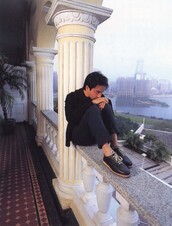
— When you came back to Hong Kong you joined RTV (now ATV)’s singing contest. What was that like? I often sang at the place my friends worked at when I was in the UK. When I came back to Hong Kong, I found that English songs were quite popular so I wanted to see if I could break into the industry. To be honest, I was half goofing around. I never thought about becoming a singer.
— But you got second place and signed a contract with RTV… I did, but I didn't become popular instantly. From 1977 when I debuted until I released “Monica” in 1983, I was pretty much a nobody. During that time I sang English songs and wore jeans and sweatshirts, but the trend back then was for people to wear suits and sing seriously. I was young and had a baby face. Maybe I just didn’t fit the requirements for an idol of that time.
— Do you have any unforgettable memories from that time? Oh, I have a lot. I can think of one incident that was the most painful - no, miserable for me. One time, I was a performer at a concert where a lot of famous singers were performing. When it was my turn to go on stage, I threw my hat into the crowd. No one caught it - in fact, they tossed it back! That was so cruel. *laughs* There was a time when I had to go through stuff like that. Now I’m almost nostalgic for it, but I was pretty incensed about it back then.
— On the other hand, you started playing major roles quite early on in your acting career. Were you always interested in becoming an actor? I’ve always been interested in acting. I was lucky that as soon as I started out, I was already playing the main characters. If my memory serves me well, my first movie was released in 1979. It was a comedy with some… slightly sexual parts. But because I didn’t really have a choice in the roles I played, I took on all sorts of roles. I was young and wanted to earn some money, so I just acted in everything. Even though I can’t be proud of some of my parts, I don’t regret anything. That’s how people mature along with time.
— Are there any of your movies that you wouldn’t want to watch again? No, actually. But when I see some of my older films, I feel bad just thinking about my situation at the time. Back then, I never had over HKD$1000 in my bank account. I kept thinking, “Wouldn’t it be nice to have a thousand dollars…”
— Didn’t you feel disheartened during those seven years of being a nobody? To be honest, I never found that period long. The reason I say this is because the entertainment industry at the time didn’t really have anyone who became a star the moment they debuted. It was practically common sense that it’d take ten or so years to become a star.
— So did you believe that one day you’d become a star too? Hmm, how do I say this? Even though I wasn’t totally sure that it would happen, I was always waiting for an opportunity to arrive. The stars at the time like Sam Hui, Roman Tam and George Lam influenced me heavily too. In Hong Kong though, it’s impossible to become famous or popular just by copying others. You can’t become a star without your own speciality or being unique.
— Were you influenced a lot by Japanese idols? A lot. I feel like I’m more influenced by Japanese singers than local ones. Hideki Saijo, Kenji Sawada, Mayumi Itsuwa… and especially Momoe Yamaguchi, all influenced me heavily. My version of her song, “The Wind Blows On” was certified gold. “Monica” did even better and was certified platinum. To me though, “The Wind Blows On” was more impactful. That’s why I put the gold record in my coffee shop as a decoration.
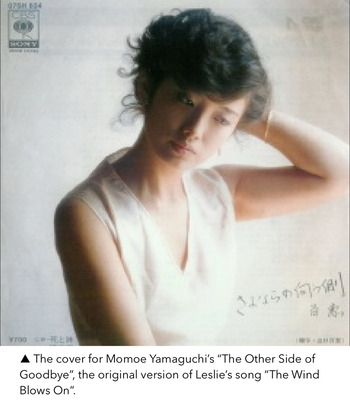
— From that moment onwards, you became an extremely popular idol. What was the life of an idol like? I was much busier back then than I am now. As someone who was both acting and singing, my work was mostly for my singing career. Also, the need to win awards was much stronger… like a “hungry artist”. Whatever opportunity arose, be it an advertisement or a performance overseas, I would take it. At the time I was just constantly in an emotionally taut state. An idol’s life isn’t as happy as people think it is. To satisfy the audience, you have to constantly be charming and handsome. For the audience, for your fans… I kept thinking like that and slowly lost my sense of self. It was like I wasn’t myself anymore.
About Mr Tong
— Do you think your personality is suitable for being a celebrity? I think so. I’m not really a fan of a fixed work schedule and job, but in this industry, the people around me all help me and I decide the rules for my own game. Of course, as an idol, sometimes your privacy gets violated which isn’t a pleasant feeling. But I’ve never liked jobs with rigorous schedules. As an artist, as long as you put out good work, you can create the rules. That was really attractive to me.
— Are you bothered by gossip? I’ve gotten much better at dealing with it. I think it’s because my fans don’t believe in all those unverified news articles springing up everywhere - rather, they believe in me and my integrity. People who believe in gossip won’t believe me no matter what I say. So there’s really not much use in being bothered by gossip. In the end, people will believe what they want to believe.
— Even though you say that, it must make you uncomfortable. They have no right to say those things… Well, of course I’ll feel uncomfortable. When talking about my mother’s funeral a while ago, the press chose to put the spotlight on Mr Tong (Daffy) rather than my mother’s death. I thought that was really unfair and it showed no respect for the dead. Even though I’m an artist and it’s only normal for people to write about me, I can’t tolerate people writing all kinds of rubbish about my siblings and my friends. They shouldn’t be the target of the media’s abuse. I really want to protect them, and I feel that I have the ability to do so as well.

— To you, what’s Mr Tong’s position in your life? He’s my best friend. I can tell him everything. He’s like a little brother to me. We’ve known each other since we were young, my mother was his godmother [Interviewer’s Note: In China, apart from biological parents, people have the habit of getting godparents 乾爸媽 for their children’s future. People treat their godparents like their own relatives.] Especially after his family moved to the US… he was just like a member of our family.
I think I’ll be indebted to him for the rest of my life. Before I became famous, I urgently needed a good amount of money because of a certain incident. I think that was the toughest time of my life. He didn’t say anything and just found a way to get the amount of money. That was worth months of his income. I only heard through the grapevine later that he ate only the cheapest takeout for lunch every day afterwards because of how costly it was for him. He was the only friend who treated me so well in my hour of need. So I’ll always treat him like my lifelong friend. He’s not just one of my friends. To me, he’s a very special, very important friend.
— The media has been speculating a lot about your relationship with Mr Tong. What do you think about that? I really hate it. I’m okay with it, but he’s just a normal guy. Yet the reporters chase him all around Hong Kong and take all kinds of pictures. It even disrupts him from doing his job… I really feel ashamed about it.
It’s the same for my brothers and sisters. Don’t write all kinds of rubbish just because one of my siblings is getting divorced. I’m alright with the press writing whatever about me, but I really don’t want you all to write about my family and friends. That’s just not fair!
On dating and marriage
— Let’s talk more about you. People say that a big part of your charm is your mysteriousness… That’s because I don’t talk about my personal business in public and I rarely make news for the press. How meaningless would it be if I just exposed everything about myself? Of course, I’m not saying I shut myself in at home every day and hide from everyone. The reason why I opened up a coffee shop was so that I could create a place where I could meet my fans. As long as you bump into me, I’ll sign an autograph for you and we can even take pictures together. My door is always open.
However, I don’t want to publicise my home, my life, and my friends and family. I just want to keep my privacy. There’s always someone asking, “Don’t you want to get married?”! That’s my own personal business. I don’t think there’s a need for me to answer that question. — But as your fans, it’s only natural for them to care. They’ll think, “Why can’t, or rather won’t, a guy as charming as Leslie get married?” Do you really want to know that badly? *laughs* To put it simply, I’ve never had any dreams about getting married. I don’t dare to believe in marriage. There’s a lot of divorcees in my family. My parents didn’t have a good relationship and I grew up seeing multiple of my siblings going through divorces. So I’m not really confident in the idea of marriage. I don’t have a good impression of it. So maybe I’ll never get married (asks the interviewer) Are you married? Do you have a good relationship with your husband? Have you considered getting a divorce? (asks very quickly)
However, although I may never get married, I still care a lot about my family. Ever since I was young I didn’t really have a relationship with my home and relatives, so now I really care about “home”. I only put things I like in my home - I want to create a space where it’s okay to relax.
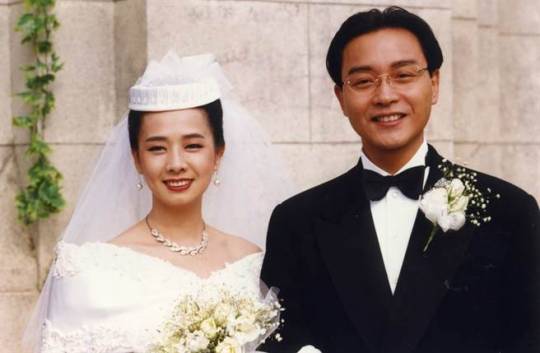
Above: Leslie Cheung and Teresa Mo for All's Well, Ends Well (1992)
— Have you really never thought about getting married? I have! That was when I was still very young. I think at the time I was only 22. She was a little older than me and we considered the idea of marriage very seriously. But out of the blue, she suddenly started acting very oddly and it was like her wires were crossed. I didn’t really know why, and at the time I was still young; in short, it was a really difficult ending.
— So you never seriously considered getting married after that? I didn’t. It’s almost definitely because my standards are too high. I’m really strict towards myself and everyone else. A normal person might be satisfied with 70% perfection, but I’d only be satisfied at around 95%. So something that’s normally satisfactory becomes unsatisfactory in my eyes. Tong always tells me, “You’re a perfectionist. Even if it’s really great, you’re still not satisfied, so I really pity you.” But when I look at him, even if it’s something very small, he's really touched and happy, so sometimes I really envy that. But I still can’t lower my standards.
— Even towards women? Hmm, you could say that if I like someone, I’ll have a lot of expectations towards them, which ends up in disappointment. I’m scared of that kind of disappointment. Besides, I’m 42 now - I’m at the age cap for liking someone! Even if a 20-year-old girl was in love with me and I liked her too, considering my age and my own personal stance, I know we can’t end up together based on feelings alone. Problems regarding the future, our environment… there are just too many problems to consider. As you get older, apart from becoming more demanding, you also lose more of your passion and vigour, so it’s kind of difficult.
— Even though you say that, there are definitely plenty of women who like you. I don’t know… at this age, you can’t just fall in love! For example, if a girl told me “I love you,” I’d have to think: “Huh. Why is that?” *laughs* Really! I get scared just considering things about the future. Because for two people to coexist together, apart from love, you have to understand each other in all aspects, such as your personality, way of thinking, lifestyle… Take me and my mother as an example. Even though we’re mother and son, living together suddenly after being apart for so many years and trying to understand each other was really difficult. Of course, it’d be best if we could love each other from the bottom of our hearts and fully understand each other…
— It seems like your emotional state is really important in making a decision like this. Of course. As long as your hearts and souls are connected, even making love isn’t important. Of course, I don’t want to deny its importance either! *laughs*
— May I ask who you love most right now? Talking about who I love most… probably myself. If you’re talking about people other than myself, I guess you could say that as long as I truly like them, it doesn’t matter whether they’re male or female.
— So you’re bisexual? I’m trying to say that if someone loves me and I love them back, their gender doesn’t matter. Doesn’t matter how I say it, I won’t be able to find that kind of happiness anyways. If you’re okay with both men and women, your chances are doubled. What’s not to like? *laughs*
As a superstar
— In “Farewell My Concubine” and “Happy Together”, as well as your provocative dancing in red heels during your 97 concert… These are a series of explorations past your own gender. Are you trying to send a certain message? No, they don’t have any special correlation. I’m not trying to send any particular message either. In “Farewell My Concubine”, Director Chen Kaige told me I had been mostly playing handsome young men. I had a pretty stable image, so he wanted me to be able to play a cute woman too as an actor. As for “Happy Together”, it was because homosexuality was a hot topic back then, so I thought maybe it’d be interesting to play a gay man.
For my concert, it was because I needed a little excitement. That wasn’t my idea though - it was the designer in charge of costumes and arts. David Bowie’s feminine performance on stage had a huge impact, so he said it would be very meaningful to do it in Asia too.
Actually, our original intention was to do Beijing Opera. But the clothing and makeup would be quite a hassle, so we wanted to find something that could replace it. We thought of putting on red lipstick based on the theme of the song “Red”, but the Hung Hom Coliseum is huge. You wouldn’t be able to see the lipstick all the way up in the spectator’s stand, so I just wore red heels instead.
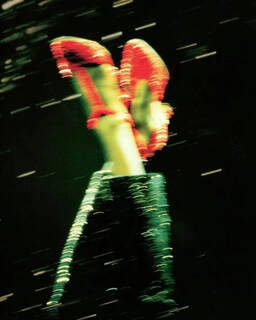
— Watching your concerts or films makes people feel you’re very self-absorbed*. Are you that way in real life as well? I do play a lot of narcissists in my films. For myself, how do I… *thinks for a rather long time* In my movies or concerts, I hope to show the audience the best me. But outside of work, I don’t even look at the mirror, and I don’t really care about my own appearance. At the very least, I’m not the type of person who likes hanging their own photos in their home or in the shop. * T/N: The word used in the original is 自我陶醉 (literally drunk by yourself). It does not necessarily have a negative connotation and is used to refer to when someone is very absorbed in what they are doing, and is enjoying it a lot. The term can also be translated as narcissistic depending on the context.
— But objectively you are quite handsome. What do you think when you see your reflection in the mirror? “Wow, he’s so handsome!” *laughs so hard he bends over* No, no, I’m just joking. You can’t really judge your own appearance objectively.
Think about it, it’s just a face you’re used to seeing since birth.
For a long time, people who don’t know me well have said I’m “pampered”, “cool”, “efficient”... to be honest, that’s not even true. I just like saying whatever pops into my head, so people think I’m a stuck up guy. Chinese people generally beat around the bush and avoid directness to be polite. For a guy like me who just says everything directly, it’s easy to get into trouble. But I guess that has nothing to do with being self absorbed.
— People describe your charm in a lot of ways, like “cute”, “handsome”, and “sexy”... which word makes you the happiest? Coming from my fans, it doesn’t matter if the word is cute, handsome or sexy - I’ll be happy either way. But if it’s someone who knows me well, then I won’t be happy with any of those words. There’s nothing worth being happy about when you’re only praised for your looks.
— So what descriptor makes you the happiest? “Good fellow”, probably? Among all the words of praise, this one moves me most.
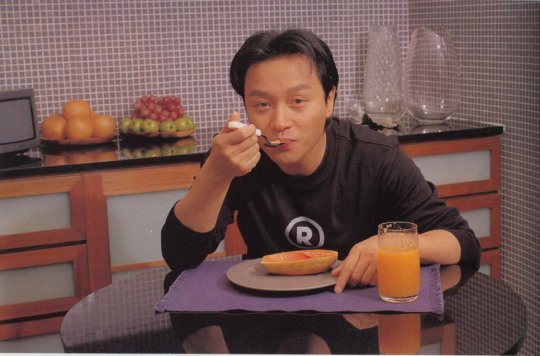
— Is Leslie Cheung the superstar actually you? Or is it a persona you've played as and released to be a marketable product? Oh, this is a difficult question. I don't really feel that I'm consciously playing a role, so I guess it should be me. There's no gap between me and "actor Leslie". *asks the interviewer* Don't you think that's my worth in a film? Also, I feel like the potential and talent needed to be a star are qualities that I possess.
Actually, people are just like kaleidoscopes. It's impossible to only show people one side of yourself. But whether it's fans or the media, they tend to only look at one side of us and make judgements based on what they look at, which creates all kinds of misconceptions. The fans tend to only like looking at the almost mythical parts of their favourite celebrities. The media also tends to make mountains out of molehills when they don't have the full picture. But the truth is, those are only variations in the pattern of the kaleidoscope.
— You could say that the job of a superstar is to sell variations in the kaleidoscope’s pattern, so it should be quite high-stress. What do you do when you feel that your stress has reached its limit? Yeah, so it’s actually really important to relax yourself. For me, I choose to go on holiday. I go somewhere no one knows me. Lately I’ve fallen in love with hot springs.
— You already have things that most people want. Positions, reputation, money, beauty, charm… If there’s something missing, what would you say it is? *thinks for a moment* Maybe education? Because I quit halfway in university. It would have been nice if I studied more during that time. If it’s possible I’d like to study all the way up to a doctorate. There’s too much that can only be learnt during your student days.
As an actor
— Do you like rewatching your own movies? Or do you not really watch them? Mm, I probably count as the type that doesn’t really watch them. Because when I watch my own films, I keep thinking things like “Oh, that’s not quite right”, or “If only I acted this way in this scene”... I mind a lot.
When I’m acting, I’m really immersed so I don’t have the time and energy to look at it objectively. After doing it all in one go and looking at it afterwards, my flaws are very obvious from a third person perspective. From a mental health perspective though, it’s not really good to dwell on regrets about something you can’t change.
— So far among all the roles you’ve acted in, are there any which you can say you interpreted flawlessly? *No hesitation* No. For all my films, if I rewatch them, I always think “I would do better if I did it now…”
— Your acting skills have clearly matured over your career, especially in romance scenes. Is this a result of gaining experience or because you consciously put in work on these scenes? Really? I got better at romance scenes? *laughs* If so, personal experience would certainly help, but it’s more that I slowly matured through constantly acting. Your acting skills are like a deposit book. If you keep putting in money, one day you’ll reap the rewards. When a melon is ripe, it falls off its stem… the time each person takes to get there is different, and of course some people never get there at all. It’s not just personal hard work, many other factors like whether you can meet a good director are all really important.
— Not just your romance scenes, there’s something unique in every way you move on the big screen. Even if it’s just your silhouette, people know for sure it’s you. Is the way you carry yourself something natural or is it a conscious effort? I never consciously thought about that. It just came about naturally. I don’t think there’s any particular “method” of acting, you’re not consciously doing this and that. I just do what I think is the most natural thing to do in that scene. In other words, I do what I think that character would do. I’m just recreating those movements.

Some actors have their best angles figured out and work out how they are best captured on camera. But I don’t really enjoy consciously acting like that. My expressions and movements are the best when I just act like myself. That’s the most natural.
However, when you keep reshooting a certain part, like the opening and ending of a certain shot, it’s easier for the editors if you do the same thing every time. But repeating the same movement over and over again really bores me, so I start trying out some different interpretations.
If the acting is very successful, the director is only human. They would also think that it’d be a waste to cut out that scene even if they have to change what they originally had in mind. What the audience sees is made up of all the best shots.
— Either way, there’ll still be a marked difference in the performance of a good actor and a bad actor. Well, of course. Talented actors or actors of a high calibre make you forget their acting. You feel like they’re just being themselves. That’s because they’re unique and not an imitation of someone else - that's why they’re convincing.
In comparison, those “average” or untalented actors are often unwilling to challenge themselves so while they don’t make huge mistakes, they also can’t make the audience feel the character fully. They make no attempt to be unique and instead subconsciously copy people around them.
— You’ve played many roles alongside several prominent leading ladies. As you continue to play these roles, your partners get younger and younger. It may not look like it but there’s actually an age gap between the two of you. Do you feel the age gap between you and your costars? Yeah, it’s like that now. *laughs* To be honest, lately with my costars it feels more like I’m teaching a student rather than acting with them. In fact when actually on set I become a teacher completely. *laughs* However, even though I feel the age gap between us, I have a baby face, so it also looks unnatural if I act alongside the actresses of my generation. I guess it can’t be helped.
On the movies he's starred in
— Which one of your starring roles was the hardest to play? *thinks for a moment* Ho Po-Wing in “Happy Together”. I was feeling unwell* during the shooting and I had to arrange all kinds of things for my upcoming concert which made me really nervous. Wong Kar-wai’s the type of director who doesn’t prepare a script and there were all kinds of problems. It was especially difficult to make Ho Po-Wing, whose personality is horrible, a charming character. I was really worried about that. * T/N: Leslie had amoebiasis during the filming in Argentina after eating contaminated food. — You still pulled off the role successfully though. You were even nominated for the Hong Kong Film Award and Golden Horse Award for Best Actor. That was really unexpected. I didn’t really think I was the main character in “Happy Together” so I didn’t think I was qualified to be nominated.
— Do you think you were qualified for the award for your roles in “Days of Being Wild” and “Ashes of Time”? The panel decides who gets the awards. I can’t really judge whether I’m qualified to get a prize. If there’s any film of mine which I think should be qualified to win something, it would probably be “Farewell My Concubine”. It won the Palme d’Or at the Cannes Film Festival. I was also really delighted to hear that it was a critical success in Japan.
— Was it easier to play Cheng Dieyi in Farewell My Concubine compared to Ho Po-Wing in Happy Together? Yeah. I liked Dieyi’s personality more too and we had more in common, especially his dedication and meticulousness towards art and love. I felt that really deeply. It was difficult to grasp the Beijing dialect and learn Beijing Opera though. But overall in all aspects, it’s an unforgettable film for me.
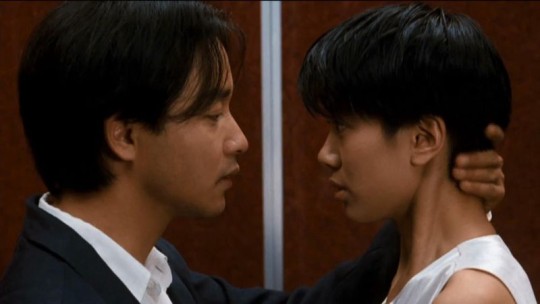
— “He’s a Woman, She’s a Man” is a film portraying the workings of the entertainment industry. Fans think that Koo Ka-ming (Sam) is actually a depiction of you… Not at all. I can’t write songs and I can’t play the piano either. *laughs* I guess we behave similarly when we’re single… Looking inward, if there are any similarities, maybe it’s in our living habits and worldview. We're more stubborn about that. As for some other aspects, some of those are just my own personality peeking through. Like the scene where I’m very scared and stuck in the elevator. Actually, that was just my real reaction when imagining the incident occurring to myself. Did it look real?
— I see. So that scene was just you. I always felt like that fear seemed too real. *laughs* Now that I’m talking with you though, I do feel that you share far too many similarities with Sam Koo. Hm, really? Okay, maybe a bit. *laughs* But to be honest, rather than Sam Koo being like me, Sam Koo is like the director Peter Chan.
Directors and Actors
— Speaking of Director Peter Chan, I wanted to ask you about the directors you've encountered. You worked together with Chen Kaige in "Farewell, My Concubine" and "Temptress Moon", so I suppose he's one of the directors who really appreciates your talent. He does like working with me. The script for "Temptress Moon" was written after I was chosen to play the lead role. A so-called "tailor-made" script for me.
— There are rumours that you were originally going to star in “The Emperor and the Assassin”. I was invited to, but my schedule didn’t allow for it. The shooting would take around a year but I had a world tour going on, so I couldn’t give him that much time. There’s also another reason. The main character of the film was a tall, strong, broad-backed guy in Chinese people’s imaginations… I’m too far away from that kind of image.
— The roles you play in Wong Kar-Wai’s films and Tsui Hark’s films are totally different. Is this because the two directors have different impressions of you? Maybe it’s because they’ve observed different parts of me. Besides, the content of their films is quite different. Wong Kar-Wai’s films are in a unique, perhaps “dispirited” or nihilistic world. Even though the time or location of his films varies, the world he’s trying to create is always the same.
Comparatively, Tsui Hark’s movies always have some kind of hidden philosophical or political thought. Even if the movie is very dark, there’s always hope and light somewhere. Do my roles reflect the differences in their films?

— It was quite shocking to see that you didn’t need guidance from the director (Jacob Cheung) on the set of “The Kid''. Instead, you mulled over and interpreted the role yourself. Is this the norm for you? Pretty much. Directors rarely adjust my acting. That’s why some people can’t stand it when they work with me for the first time. Generally, directors think that acting is something the director arranges for you.
But to be honest, once they start filming, they begin to recognise my acting and usually take my opinions and advice into account. Of course, people don’t think the same way, and my opinions may not be the same as the director all the time. But I’m dedicated to every role I play, and I always hope that I can make a good film. That’s definitely something I share in common with the director.
— In terms of acting skills, you don’t really need a director… How could I? It’s impossible to imagine not having a director. Think about it - no matter how good actors are, they’re always in first-person perspective. An expert looking at you from a third-person perspective and correcting your technical errors, which is the director, is absolutely necessary. Of course I might disagree with the director, but that’s a really important part of making a good movie.
I’m a really lucky actor in that I’ve worked with a lot of great directors. John Woo, Chen Kaige, Wong Kar-Wai, Peter Chan, Jacob Cheung… all of them are excellent directors. The fact that they think I’m a good actor makes me happier than anything else.
To be honest, how good a film is rests almost entirely in the director’s hands. The director is the lynchpin. A movie is a treasure chest and the director is the key. Whether you can unlock it and get the treasure depends totally on the director. That’s why my goal for now is to become a director.
About the future

— Have you already begun work on your directorial debut? I’m working on it. If all goes well, I should be able to start filming in the spring (1999). I haven’t really decided on the contents though.
— As a director, who would you consider picking to be the female lead? Karen Mok or Shu Qi. Karen is a really good performer and an actress with a bright future. Shu Qi isn’t just beautiful, she’s sexy too, so I think she’d be a good fit for a romance movie. They both have great potential.
— Your fans worry that you won’t act anymore once you begin your directorial career. How will you divide your time among directing, acting and singing? I think I’ll reduce my activities as a singer. I want to do music when I’m relaxed and not churn out albums regularly like I do now. Maybe just once or twice a year. I want to really feel the joy of making music and sing for the people who truly like my songs.
As for directing, I want to focus on only being a director at least for the first one or two times. Later, when I’m getting the hang of it, I’ll decide whether I want to continue being an actor. If it’s all smooth sailing, I could be an actor and a leading man like Robert Redford.
— That’s certainly comforting. As an actor, are there any roles or films you’re interested in outside of Hong Kong films? Jack Nicholson’s role in “As Good As It Gets”. It’s really easy to hate that character, but his character is actually really kind-hearted. I think it’d be interesting if I could play that kind of role.
— There’s another role in “As Good As It Gets” - the gay artist with a very special personality. What about that kind of role? *laughs* No way. I don’t want to play that kind of role. *laughs*
— So on the flip side, what kind of roles wouldn’t you be willing to play or be able to handle? The kind of roles that Jackie Chan plays. *laughs*
— There’s a rumour that you won’t act in comedies anymore. Is that true? No! I love the flow of comedies and I might act in one some other time. If I get used to being a director, I might even film one myself.
— Lastly, please tell me something about your first musical, “A Chinese Ghost Story”, which is scheduled for next year. I’ve never done a musical before so I’m really curious about it too. Challenging myself to try a new thing really excites me. If it’s a success, I feel unprecedented joy. The reason why we chose “A Chinese Ghost Story” to be made into a musical is because of its visual effects. Musicals are a product of blending your hearing and sight. I hope the music and visual effects can complement each other and elevate the musical.
— Will there be a performance in Japan as said before? If possible, we’d like to do it. But unlike movies, there are no subtitles, so the language barrier might be a problem.
— Even if there’s a language barrier, we will still be able to enjoy the performance. Please make the Japanese performance a reality. I’m really happy to hear that. Whatever happens, I hope it’s a successful musical. I’ll try my best, please remember to come watch it then! * T/N: The “A Chinese Ghost Story” musical never happened due to investors’ uncertainties regarding the economic state of Hong Kong at the time, among other reasons. You can read an archived article about it here.
Leslie's past dream home
In the interview, Leslie spoke many times about “home”. Since his childhood, he dreamt of having a carefree, stable home. Leslie, who is interested in interior design, finally helped to design his own home and created his “dream home”! Unfortunately, once he moved, the media surrounded his home. Even tour buses stopped by, which led to the house being sold not long after him moving in…
I wish to have a place where I can’t be disrupted, and I can relax myself… saying this, he reveals part of his dreams and thoughts.
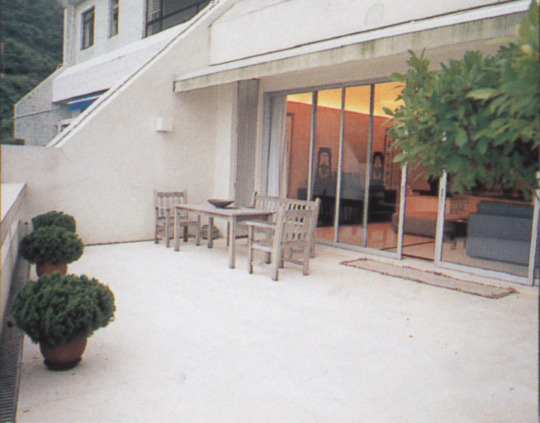

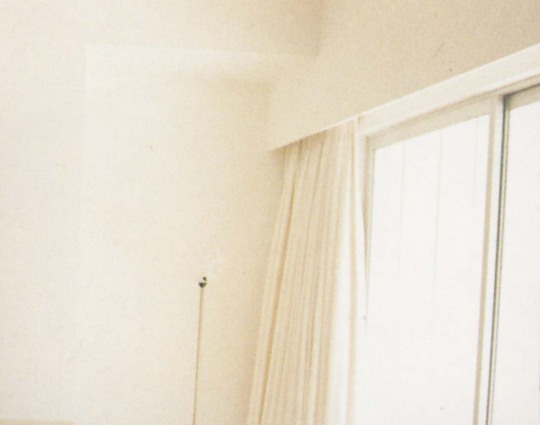
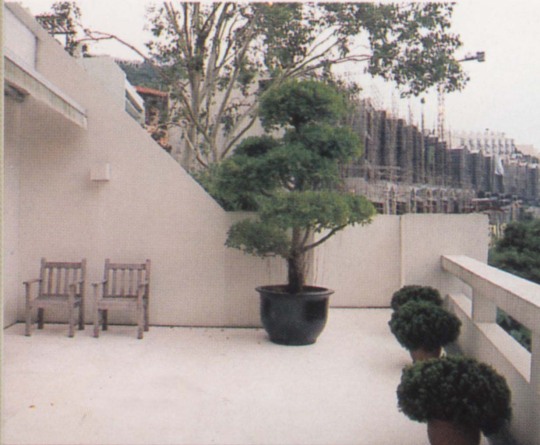
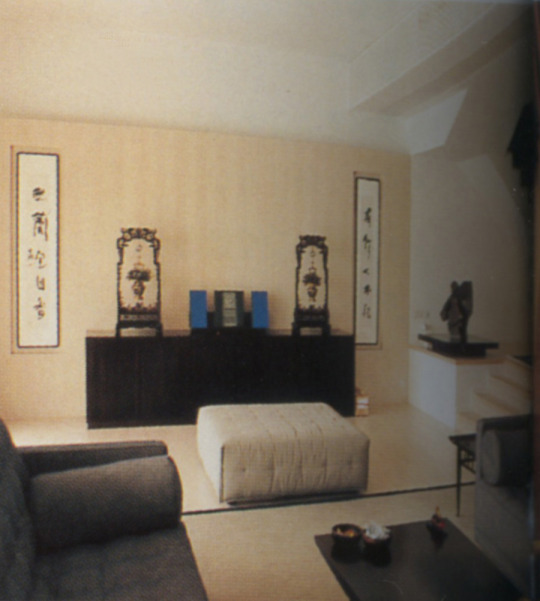

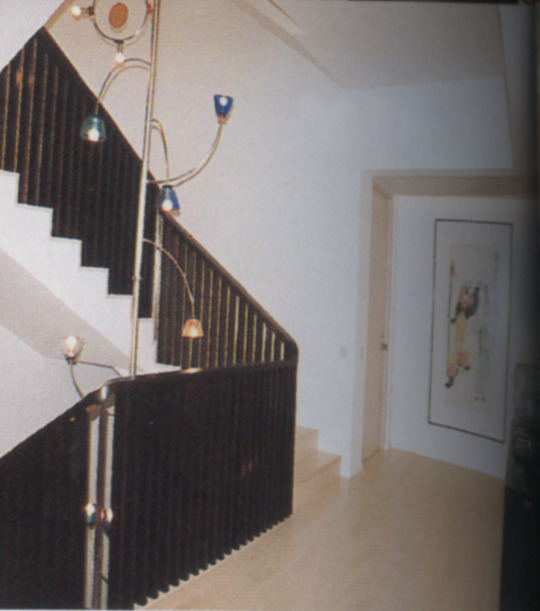

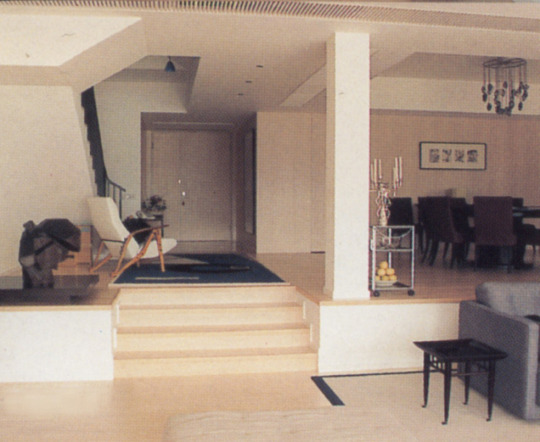
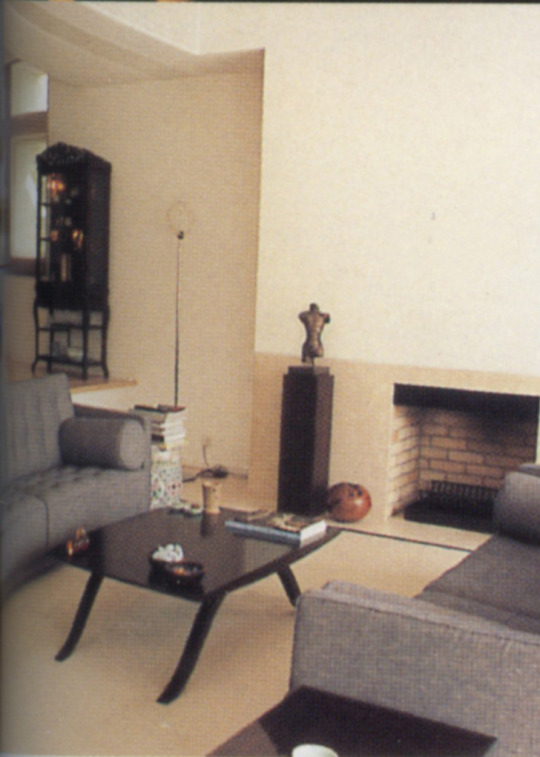
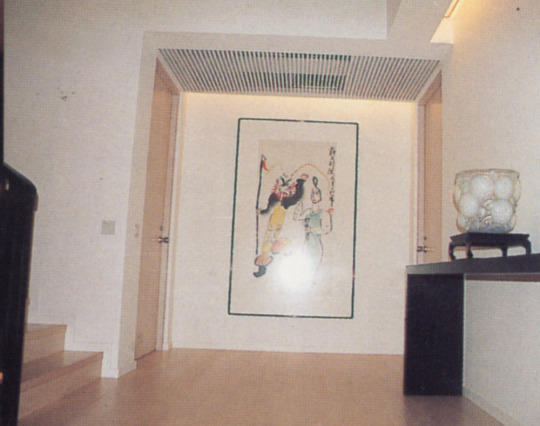

Personal Information
Helping you to understand more about Cheung Kwok-Wing
Place of Birth: Hong Kong
Blood Type: O
Nickname: 哥哥 (Gor Gor, lit. big brother)
Where the nickname came from: His costar in “A Chinese Ghost Story”, Joey Wong called him that. After a while, everyone around him started calling him Gor Gor
Favourite flower: Orchids, because they bloom for a long time.
Favourite food: Seafood, especially lobsters
Least favourite food: Mexican food *scrunches up his brows – it tastes terrible!*
Favourite colour: White, black and grey
Favourite car: Porsche Range Rover
Current car: An ink-green Range Rover
Traits when driving: Drives safely (He says that, but he’s actually a speeder)
Interests: Painting appreciation and watching films. Also interested in antiques
Biggest fear: Flying, especially in turbulence. A bit scared of heights and is also claustrophobic
Things he hates: Gossip including people who spread gossip and people who like gossip
Favourite book: “Dream of the Red Chamber” and books about interior design/decoration
Favourite author: Ba Jin (巴金)
Favourite movie: Gone with the Wind
Favourite actors: Daniel Day-Lewis, Jack Nicholson, Robert De Niro
Favourite actresses: Audrey Hepburn, Vivien Leigh (says while laughing: they’re not trendy anymore!)
Favourite directors: Akira Kurosawa, Bernardo Bertolucci, Li Han-hsiang (a HK director active in the 50s-70s)
Favourite singers: Barbara Streisand, Elton John, Boyz II Men
Buying clothes: Buys them by himself. Usually buys underwear through mail order.
Favourite brands: Jil Sander
Favourite animal: Dog
Pets: German Shepherd “Bingo” (Bingo is his third dog, he also had another shepherd dog in Canada)
Religion: None
Rules of living: Be patient, be genuine with your friends
When alone at home: Reads a book or watches TV
What he looks like asleep: Naked. It’s best to wear nothing when you’re sleeping!
How he sleeps: Usually on his back
Falling asleep: Quite easy. As long as he doesn’t have too much on his mind, he can fall asleep very quickly
Waking up: Decent. Might be an “early bird”.
Bad habits: Doesn’t really have any significant bad habits
Superstitious: A bit
When is he superstitious: Greeting people at home and paying respects to the Buddha in temples. That kind of thing.
Where he washes first when showering: His head
Favourite part of his face: Chin (the fortune teller said it was a chin which foretells making many good friends in his later years!)
Least favourite part of his face: Left eye. It usually has a double eyelid, but it becomes a triple eyelid when he’s tired
Favourite part of his body: Doesn’t have a favourite
Least favourite body part: Legs
Why it’s his least favourite body part: They are too short. It would have been nice if he was just a bit taller (By the way, he says his height is 175 cm)
Your personality: Ever-changing
An animal you’re most alike to: A wild monkey
Reason: Likes being carefree and spontaneous, doesn’t like feeling tied up
Happiest thing in his life: “Farewell My Concubine” winning the Palme d’Or
Saddest thing in his life: His parents passing away
If he was reincarnated, what would he want to be: A human
If he was reincarnated as an animal: A bird then
Would he rather be male or female: Male. Because in this world, men can be independent
If he was a woman: He wants to be a woman who is very rich or a very talented woman so he doesn’t have to be ordered around by men and can live an independent life
Interviewer/Writing: Shima Chitose Translation: Me (@dailylesliec on Twitter/Tumblr) Do not repost without credit. If you like this translation, consider following me or buying me a Ko-fi. Taken from the Leslie's Everything / Leslie 的所有 fanbook.
18 notes
·
View notes
Text
[TRANSLATION] "Auspiciousness" - Excerpt from "Will You Remember"
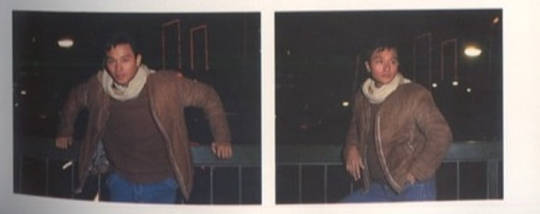
He was so incensed about this that his face was red from arguing by the time we realised it was a misunderstanding.
Leslie was my most superstitious friend. My “westernised” friends didn’t believe in Feng Shui – all but Leslie. Whenever he bought a new home, he always made sure to run it past a Feng Shui master to make sure the house was auspicious. In addition, he always got his fortune told at the start of each year. Even if he couldn’t go himself, he’d always find someone to go in his place. That being said, he wasn’t superstitious to the point that the interior design of his home was fully following feng shui - he valued the actual design more. On one occasion when Leslie was moving to his new home, a fortune teller told Leslie to bring a pot of water to a friend’s house and boil it. When the water started to boil, he should then bring the pot of water back to his new home as this would bring good luck. Leslie thus sought help from his friends living closest to his new home – after all, moving around a pot of boiling water is no easy task. Finally, he recalled and reached out to a record label executive who lived close to his new home. When Leslie told the record label executive about the fortune teller’s advice, he agreed, but his wife was vehemently opposed to doing so. His wife believed that it would be incredibly stupid to boil water in their home and give it to someone else – as that meant they were willingly giving their own wealth (T/N: water 水 is a way to say money in Chinese) to someone else. This was a no-go as only Leslie would benefit while they would be losing out. In the end, they came up with a solution: both of them would boil a pot of water and gift it to each other. From my point of view as someone who doesn’t believe in such superstitions, this is just a way to keep yourself busy – perhaps even to the point where it’s just stupid. To be honest, I still feel that it was dumb, but maybe that’s why I’m still not rich. As for releasing albums, he didn’t really care about choosing an auspicious release date, but he was a firm believer in the idea that having ten songs in an album would bring him luck. When working with him for the first time on SUMMER ROMANCE, we wanted to record eleven songs and pick ten of them, but Leslie thought we meant to release all eleven of them. He was so incensed about this that his face was red from arguing by the time we realised it was a misunderstanding. Having *ten* songs was really important for Leslie.
Translated by me (@dailylesliec on Twitter/Tumblr), do not repost without credit. If you like this translation, consider following me or buying me a Ko-fi. Taken from the Will You Remember fanbook.
11 notes
·
View notes
Text
[TRANSLATION] Art and Piece Issue 16 - LESLIE X ALAN CHAN - Album Covers
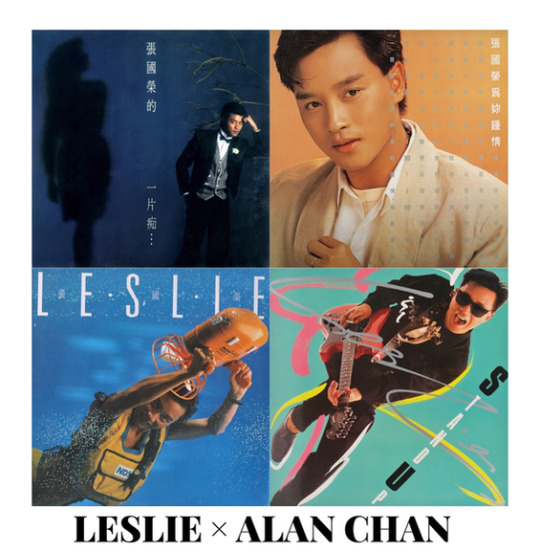

1983 "Craziness" The first album where Alan Chan and Leslie worked together was Craziness. Notably, the waistcoat, shirt and bowtie were all borrowed personally from Alan Chan. "That outfit was from the Japanese brand Matsuda which was quite the craze back in the 80s and 90s. I still have it even today."
1985 "For Your Heart Only" When shooting the album cover, Gor-gor already had the whole scene envisioned in his head, even preparing his own outfit and arriving wearing the ring his lover gave him for photos. In the end, Alan Chan used a softer way to approach the cover, expressing Leslie's pure, loving side.
1984 "Leslie" At first, the album cover photoshoot was supposed to take place at Albert Yeung's home in his pool. However, the end product made the water look very murky, so a large tub was specially arranged for. After Leslie got in, some bubbles were added and the cover was shot again, fitting with the theme of H2O.
1986 "Stand Up" The album came in four colours with a little hole at the bottom - fans bought all four of them. At the time the top artists in Hong Kong sold 300-400k copies per album. This album, instead of the projected 500k sales, ended up selling 2 million copies.
1987 "Summer Romance" The album cover photo was taken all the way in Tokyo. Alan Chan arranged for the location and everything, thinking that it was foolproof. However, in the end he found a fallen hair in the photo making it look bad. There wasn't Photoshop back then, but luckily he found a technician to dissect the film layer by layer and remove the hair. It ended up being even more expensive than the photoshoot itself.
1989 "Leslie '89" Alan Chan said that"Leslie '89" reflected Leslie's truest, most affectionate side. Leslie took the album cover photo by himself, and Alan Chan added some finishing touches and colour with aerosol paint. It became one of Gor-gor's most iconic albums.
1988 "Hot Summer" This album was one of Leslie's most successful dance-pop albums after switching to Cinepoly Records. Alan Chan added several futuristic, pop-art elements and even included a pair of 3D glasses in the album, giving it a unique and fun twist.
1989 "Final Encounter" The stage in the album cover was actually constructed in real life and was several feet tall. A vertical observation ladder was also made for photo-taking. However, it was not very stable, so all the photos were taken in one go, making the set of photos extra memorable.
Translated by me (@dailylesliec on Twitter/Tumblr), do not repost without credit. If you like this translation, consider following me or buying me a Ko-fi. For the formatted PDF version of this spread, click here.
5 notes
·
View notes
Text
[TRANSLATION] Art and Piece Issue 16 - Alan Chan about Leslie Cheung


“He climbed out of the pool and asked me, 'Don't you just think my shorts look so gorgeous and sexy today?'”
A BEAUTIFUL TUNE IN THE MIDST OF EMPTINESS
Alan Chan - Renowned Hong Kong designer
I am Alan Chan. I am a designer, and designed multiple album covers for Leslie Cheung.
In the 80s and 90s, I designed album covers for several big names and superstars. Some people even called me Leslie's "go-to designer" because of that, and I also witnessed a lot of high points in Leslie's music career. As I work in graphic design as well as advertising, I don't use a very personal angle in creating an album cover. Rather, I use the artist as a starting point, to accentuate the public image the artist had at that point in time.
The first time I helped Leslie create an album cover was in 1984. Capital Artists was beginning to realise that they needed to "package" or "dress up" their artists and came to me for help. And like that, I worked with Leslie for the first time on his album Craziness. Leslie was a gentleman - once he even invited me to have dinner at his then-home in Taikoo Shing after the album was done. To be honest, Leslie and I weren't very close, but we were both very emotional people. We didn't need to say much to understand each other. It was quite fun working on Craziness though. At the time Capital Artists was still quite new and our budget was quite small. The waistcoat, shirt and bowtie that Leslie wore during the photoshoot were actually mine, I just lent them to him. Fortunately, they fit.
I still remember when Florence Chan, Alex Chan and I waited outside the recording studio from noon until late night. When we heard the finished product of Sleepless Night, I really couldn't help but let out a "WOW" in my heart. We knew that this song would make him a superstar. Later when we went to Japan for the Summer Romance photoshoot, I had my eye on a pair of shoes while shopping there. When I went to pay, I found out that gor-gor had already kindly bought them for me. It's an unforgettable memory of mine. Those pair of shoes are almost completely worn out but I still keep them.
I don't really know a lot of artists, but Leslie is definitely the most artistic one. You can see this even in the details of his everyday life. When he moved from Repulse Bay to Kadoorie Hill, he did all of the interior design himself. The furnishing was very tasteful - he just knew how to pick and arrange elegant furniture. He was also a really easy person to communicate with about creating. We both trusted each other a lot in the design process. I knew very well that at some point, o matter if it's singing, acting, or any other sort of artistic approach, an artist should be able to think for themselves and not just follow the crowd.
Just like for the later Leslie '89, Leslie himself took the album cover photo, while I added some finishing touches and colour with aerosol paint. Or take For Your Heart Only. He knew what he wanted to do from the start and even prepared his own outfit. When he arrived, he put on the ring his lover gave him for the photoshoot, so in the end we used a more soft way to handle the cover in order to show Leslie's pure, loving side. Rather than expressing it to the fans, I feel like the concept of the album was for Leslie's own heart. Virgin Snow's aesthetic and typography doesn't look outdated even today. Final Encounter is also really worth remembering - I constructed a ten-or-so feet tall podium and used a vertical ladder to climb up there and take photos, it actually wasn't very stable or safe.
Mirages exist in all of entertainment business. All performances will have parts where we are "pretending" and this is called showmanship. The personality of an artist shows through your showmanship. I felt that the natural, creative energy that Leslie had was unique. No other artist had it. Leslie's beauty came with a sort of feminine sexiness, it was soft-spoken, and he wasn't afraid to show off his attractiveness. I remember during the photoshoot for the Leslie album cover, he climbed out of the pool and asked me, "Don't you just think my shorts look so gorgeous and sexy today?"
Not everyone can be him.
Translated by me (aka @dailylesliec on Twitter/Tumblr), do not repost without credit. If you like this translation, consider following me or buying me a Ko-fi! For the formatted PDF version of the article, click here.
#art and piece issue 16#dailylesliec translations#leslie cheung#張國榮#hongkong#cantopop#hk cinema#art and piece
5 notes
·
View notes
Text
[TRANSLATION] Art and Piece Issue 16 - Man Lim Chung about Leslie Cheung
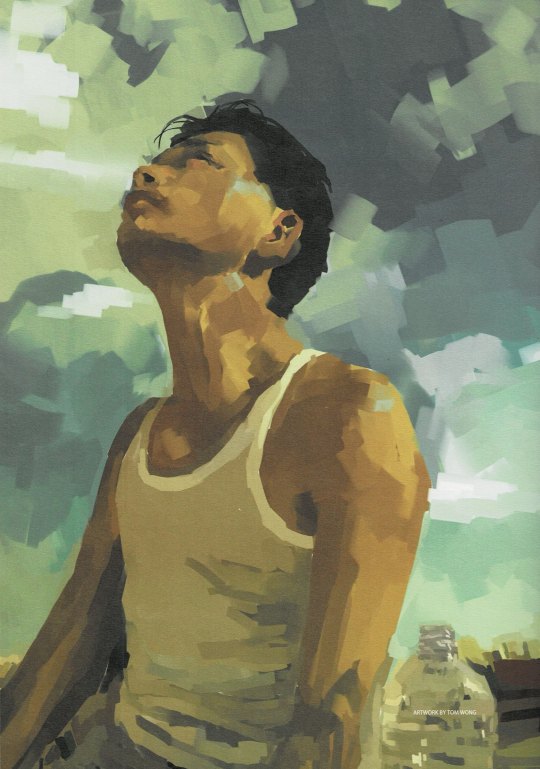
"Thank you for the beauty and grace you shared with us for so many years."
THE LITTLE SPARK THAT GOR-GOR HELD TIGHT
Man Lim Chung - Assistant Production Designer, "Happy Together"
I am Man Lim Chung, a production designer and director. In my eyes, Leslie’s beauty is irreplaceable. His magnetic pull remains unrivalled. Even before I met him, he was a superstar. Leslie, Danny Chan and the like were very popular back in the day - I grew up listening to their songs.
I first worked with Leslie in 1994 on Tsui Hark’s Chinese New Year comedy “The Chinese Feast”. I was mainly in charge of settings and special props, so I rarely interacted with him as only the crew handling the costumes would have the chance to do so. That’s why even though I saw him a lot, we didn’t really talk. It wasn’t until 1996 when I had the opportunity to work on Wong Kar-Wai’s “Happy Together” that I worked together with Gor-gor in Argentina on the film for a few months.
At first, most of the camerawork was still in the preparatory stage, such as finding props and costumes in Argentina. However, the schedule grew tighter and tighter as time went on. We had long shoots almost every day, but I was getting married in November, while the crew only set off in September. So around ten days before my wedding, I told the crew that I had to go back to Hong Kong. I remember well that around two days before I left, I passed by Gor-gor’s seat during a scene change. He suddenly grabbed me and said to me, “What the hell! Getting married? I wanna get married too... we’ve been working so hard on the film, how can you just leave us all behind like this and go get married?“ He held my hands tightly - he was obviously joking, and I could tell he was really happy for me. I was so surprised and flattered. After returning to Hong Kong, I even received a wedding gift on the day of the ceremony. Even though he was terribly busy, he still remembered my wedding.
Unfortunately, after “Happy Together”, I didn’t really work with Leslie again. In 2003, I received a call from him. “This is Gor-gor”, he said. he told me he was starting work on a movie and wanted me to help with production design. I really wanted to accept, but I was preparing to work on “20 30 40” in Taiwan with Sylvia Chang, so my schedule didn’t allow for it. Upon hearing my reply, he said, “Oh, let’s see about it again later then.” I couldn’t imagine that after SARS, not only did I no longer have the chance to work with him again, but I no longer had the chance to see him ever again.
20 years. This is the 20th anniversary of Leslie’s passing. Although I wasn’t Gor-gor‘s closest companion, I’m lucky to have two remaining photos of us - one at work, another one on a day when we didn’t have to film. Gor-gor met up with William Chang for coffee and dragged me and a translator along. Just like that, Leslie and I enjoyed a rare lazy afternoon in Argentina, sitting quietly in a coffee shop and enjoying the rays of sun on our faces. Just by looking at the photo, you can see that whether on or offscreen, he was a really kind, down-to-earth star. He didn’t care about his status and loved chatting and sharing with us. He didn’t mind jokes and was nice to all the crew. On the day he tightly held my hands, I too felt the blessings he sent me. That’s why I also want to thank him - thank you for the beauty and grace you shared with us for so many years, especially when performing on stage.
No one can replace Leslie Cheung. At least to me, that statement is completely true. We dearly miss everything he gave to us.
Translated by me (@dailylesliec on Twitter/Tumblr), do not repost without credit. If you like this translation, consider following me or buying me a Ko-fi. For the formatted PDF version of this article, click here.
#leslie cheung#dailylesliec translations#張國榮#art and piece#wong kar wai#장국영#happy together#man lim chung
6 notes
·
View notes
Text
dailylesliec masterpost!
Please credit me if you repost my translations or want to further translate them into other languages.
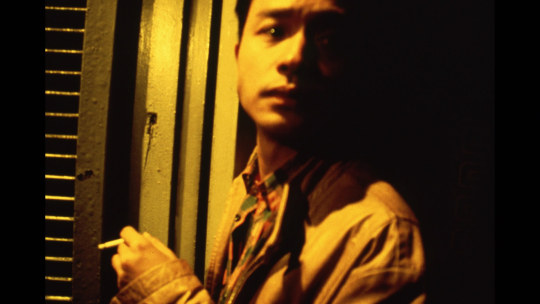
Ko-Fi: https://ko-fi.com/dailylesliec
Socials: Twitter Retrospring (Anonymous Inbox)
All my translations will be tagged under #dailylesliec translations.
Art and Piece Issue 16
Alan Chan on Leslie Cheung LESLIE X ALAN CHAN - Album Covers Andrew Lam on Leslie Cheung Stanley Kwan on Leslie Cheung Dora Ng on Leslie Cheung Man Lim Chung on Leslie Cheung
Leslie 的所有 / Leslie's Everything Fanbook - Interview
Will You Remember Fanbook
"Auspiciousness"
I will update this post with links to my other translations! Still working on transferring them all over here o7
4 notes
·
View notes
Text
[TRANSLATION] Art and Piece Issue 16 - Andrew Lam about Leslie Cheung
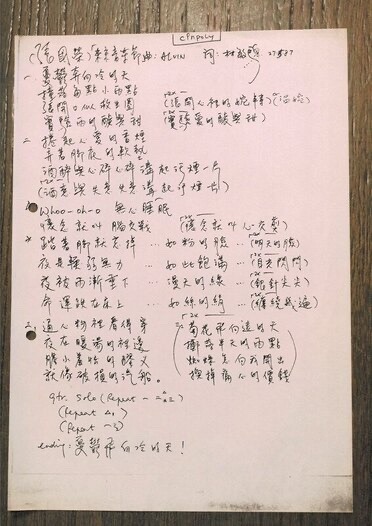
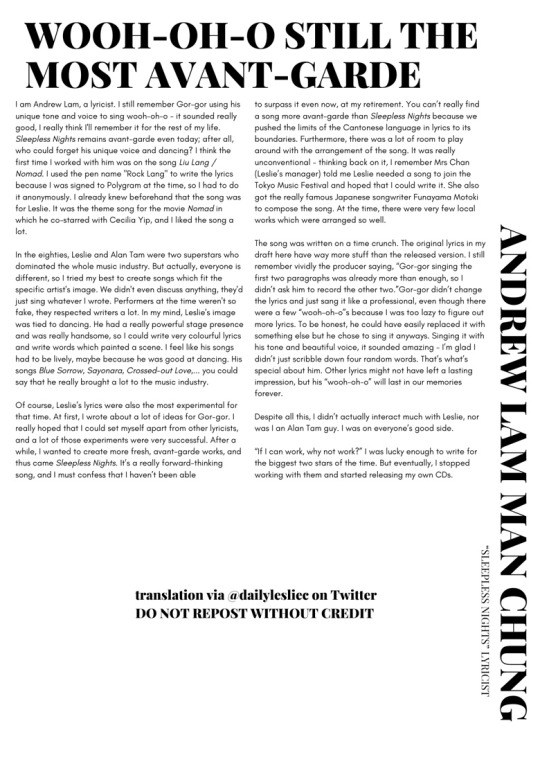
“His 'wooh-oh-o' will last in our memories forever.”
WOOH-OH-O STILL THE MOST AVANT-GARDE
Andrew Lam Man Chung - "Sleepless Nights" lyricist
I am Andrew Lam, a lyricist. I still remember Gor-gor using his unique tone and voice to sing wooh-oh-o - it sounded really good, I really think I'll remember it for the rest of my life. Sleepless Nights remains avant-garde even today; after all, who could forget his unique voice and dancing? I think the first time I worked with him was on the song Liu Lang / Nomad. I used the pen name "Rock Lang" to write the lyrics because I was signed to Polygram at the time, so I had to do it anonymously. I already knew beforehand that the song was for Leslie. It was the theme song for the movie Nomad in which he co-starred with Cecilia Yip, and I liked the song a lot.
In the eighties, Leslie and Alan Tam were two superstars who dominated the whole music industry. But actually, everyone is different, so I tried my best to create songs which fit the specific artist's image. We didn't even discuss anything, they'd just sing whatever I wrote. Performers at the time weren't so fake, they respected writers a lot. In my mind, Leslie's image was tied to dancing. He had a really powerful stage presence and was really handsome, so I could write very colourful lyrics and write words which painted a scene. I feel like his songs had to be lively, maybe because he was good at dancing. His songs Blue Sorrow, Sayonara, Crossed-out Love... you could say that he really brought a lot to the music industry.
Of course, Leslie’s lyrics were also the most experimental for that time. At first, I wrote about a lot of ideas for Gor-gor. I really hoped that I could set myself apart from other lyricists, and a lot of those experiments were very successful. After a while, I wanted to create more fresh, avant-garde works, and thus came Sleepless Nights. It’s a really forward-thinking song, and I must confess that I haven’t been able to surpass it even now, at the time of my retirement. You can’t really find a song more avant-garde than Sleepless Nights because we pushed the limits of the Cantonese language in lyrics to its boundaries. Furthermore, there was a lot of room to play around with the arrangement of the song. It was really unconventional - thinking back on it, I remember Mrs Chan (Leslie’s manager) told me Leslie needed a song to join the Tokyo Music Festival and hoped that I could write it. She also got the really famous Japanese songwriter Funayama Motoki to compose the song. At the time, there were very few local works which were arranged so well.
The song was written on a time crunch. The original lyrics in my draft here have way more stuff than the released version. I still remember vividly the producer saying, “Gor-gor singing the first two paragraphs was already more than enough, so I didn’t ask him to record the other two.”Gor-gor didn’t change the lyrics and just sang it like a professional, even though there were a few “wooh-oh-o”s because I was too lazy to figure out more lyrics. To be honest, he could have easily replaced it with something else but he chose to sing it anyway. Singing it with his tone and beautiful voice, it sounded amazing - I’m glad I didn’t just scribble down four random words. That’s what’s special about him. Other lyrics might not have left a lasting impression, but his “wooh-oh-o” will last in our memories forever.
Despite all this, I didn’t actually interact much with Leslie, nor was I an Alan Tam guy. I was on everyone’s good side.
“If I can work, why not work?” I was lucky enough to write for the biggest two stars of the time. But eventually, I stopped working with them and started releasing my own CDs.
Translated by me (@dailylesliec on Twitter/Tumblr), do not repost without credit. If you like this translation, consider following me or buying me a Ko-fi. For the formatted PDF version of this article, click here.
3 notes
·
View notes
Text
since twitter is breaking i figured i’d make a tumblr acc! hi, i’m @dailylesliec on twitter, i post leslie cheung content and translate interviews/etc for international fans - it’s been a while since i’ve used tumblr so i’m very rusty haha! 多多指教🙇
7 notes
·
View notes